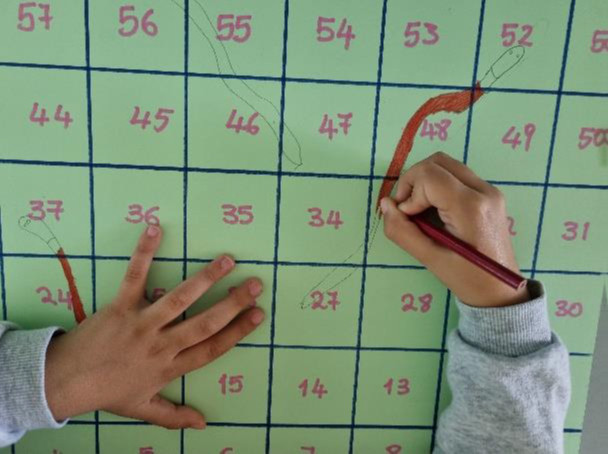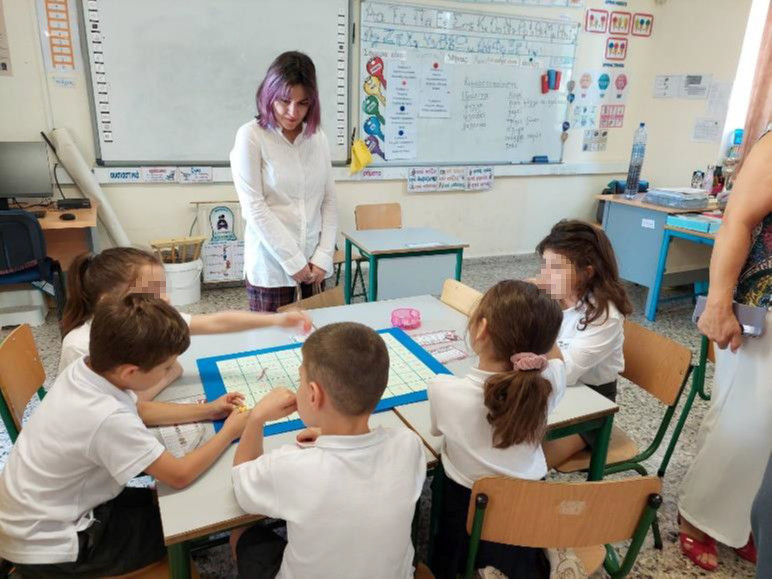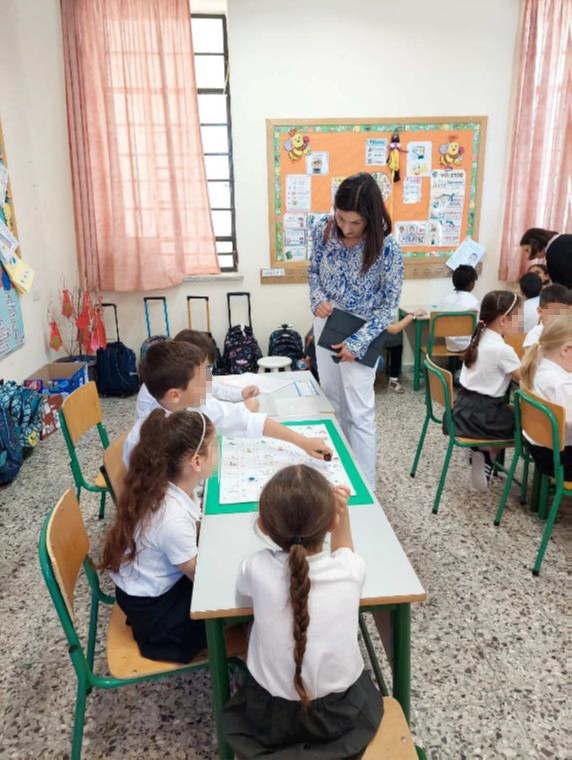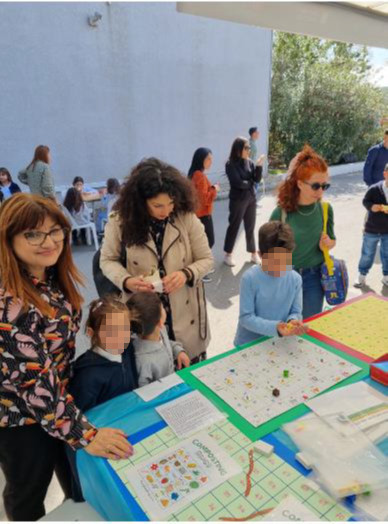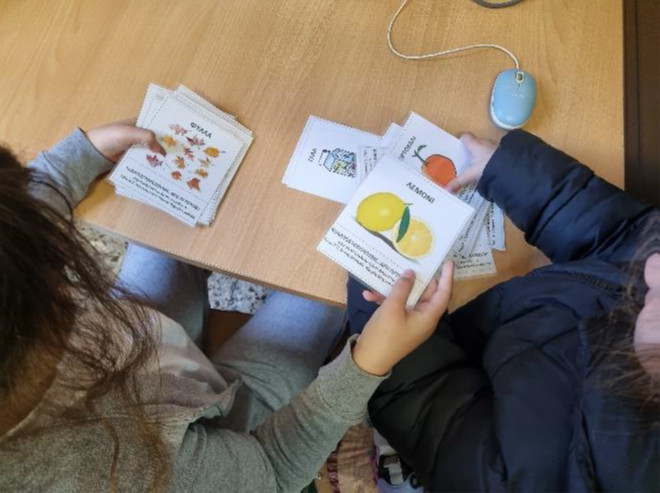
Composting, nature’s recycling. We compost, not dispose!
Drawing inspiration from activities that took place in Forli, Italy, 13 children from the Primary School of Agios Dometios A’, accompanied by the educator Maria Michael Kollyfa and the principal of the school Mrs. Chrysalleni Lazarou, started their own journey to shape their Ideal School within the framework of the European project NEW ABC with the support of SYNTHESIS Centre for Research and Education. As the children and their teachers acknowledged, the activities of the school in Italy inspired the nature of their own activities, which were experiential, collaborative, inclusive, creative and child-centred. The activities offered knowledge and skills through real-life problem-solving, through playful activities that provided children with joy and enthusiasm for the learning process.
Specifically, the children expressed their desire to work on an action that would provide solutions to the problem of food waste, as they observed on an on-site investigation that there was a lot of food waste in the school’s garbage bins. In this decision, of course, the existing cooperation they had with another primary school from Greece (6th Primary School of Nea Ionia), under the thematic umbrella “We are our values”, played an important role in their decision. By brainstorming on what the children and teachers could do to tackle food waste, they came up with ideas on how to use their leftover food and make it available to anyone who needs it. Also, one child in the class shared with everyone their experience with composting and how they use this practice at home so that food waste is used to produce beneficial food for the land, trees, and plants.
Collectively, also due to their previous work on environmental issues, they all decided to experiment as a group with the concept of composting. Thus, the action “Composting, nature’s recycling. We compost, not dispose!” was born. The children first learned what composting means, together they built a classroom composter with plastic bottles and composted what they found in the school’s trash bins (green materials) and other materials from the yard such as dry leaves, cypress leaves, pine needles, feathers from the pigeons in the yard, etc.
Then, to get a better idea of what kind of materials can be composted, the children played a Bingo game they found on the internet, which excited them and prompted them to co-create four of their own games based on well-known board games. Anyone could now play these board games and learn more about composting! With the knowledge they gained, the children were able to enter the Science Fair 2023 competition organised by the Cyprus Institute and the Cyprus Pedagogical Institute, and a few months later they organised a workshop at their school to show what they had made. In this workshop, they invited the Commissioner for the Environment, while the 123 students of the school participated in the activities that took place during the workshop, where they had the opportunity to “visit” various stations to play the games created by their classmates and learn about composting. The Environment Commissioner visited the school along with an Inspector from the Ministry of Education. Present at the event were representatives of SYNTHESIS, the School Board, the Parents’ Association, parents and teachers and the school’s students. The action was broadcasted by the media (C.N.A. Cyprus News Agency and Paideia News) and the local and educational community was informed about the actions.
The children showed great enthusiasm and joy for their participation in this action, they were looking forward and asked to do more activities and learn more. They felt proud and confident about what they had made and that they had managed to mobilise their school community through their actions. Undoubtedly, the children gained the ability to understand their role in the community and understood that by undertaking actions they can transform their school into what they dream of. Also, the children got to know each other better and bonded strongly with each other, and cultivated many skills such as cooperation, communication, problem-solving, inclusion, empathy and were able to act as leaders and active citizens.
